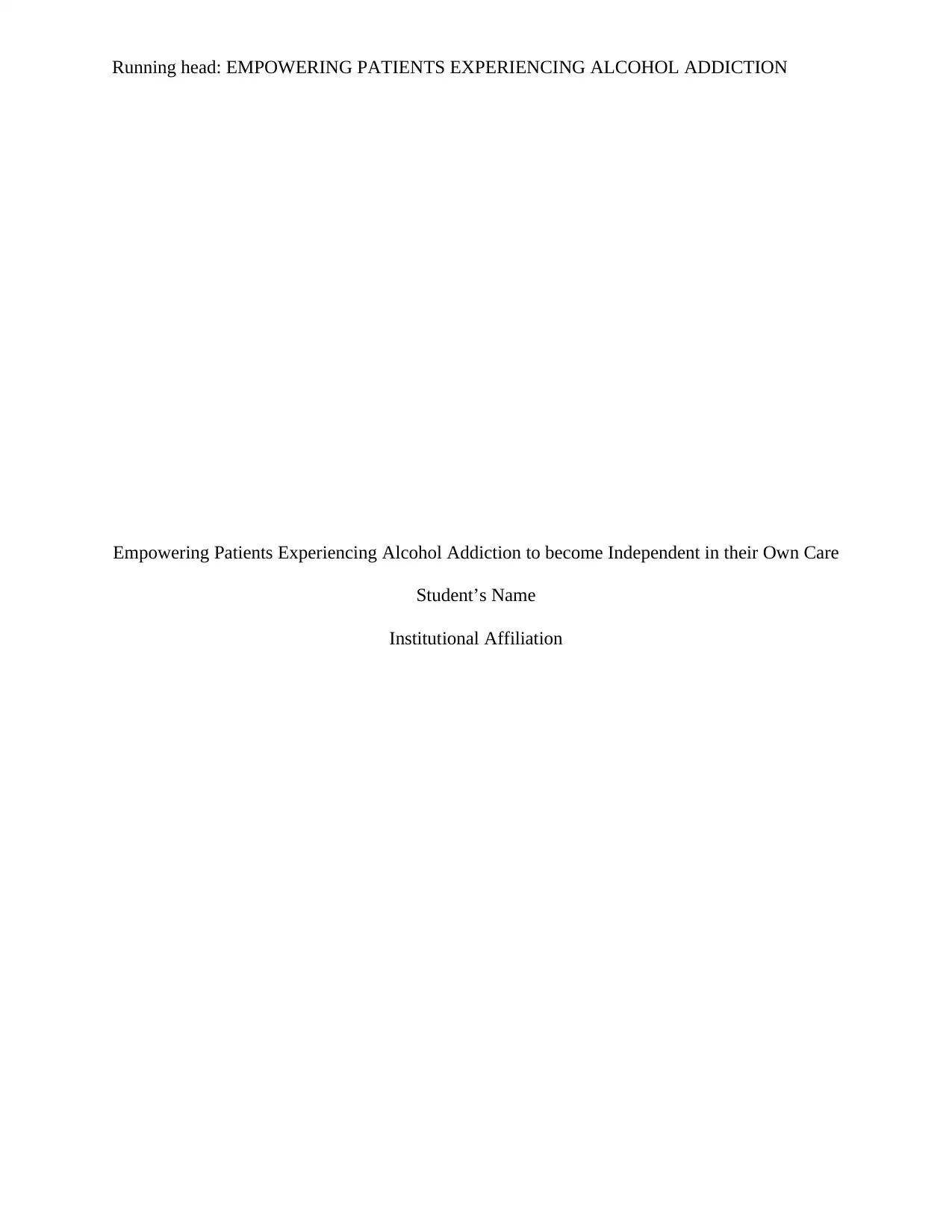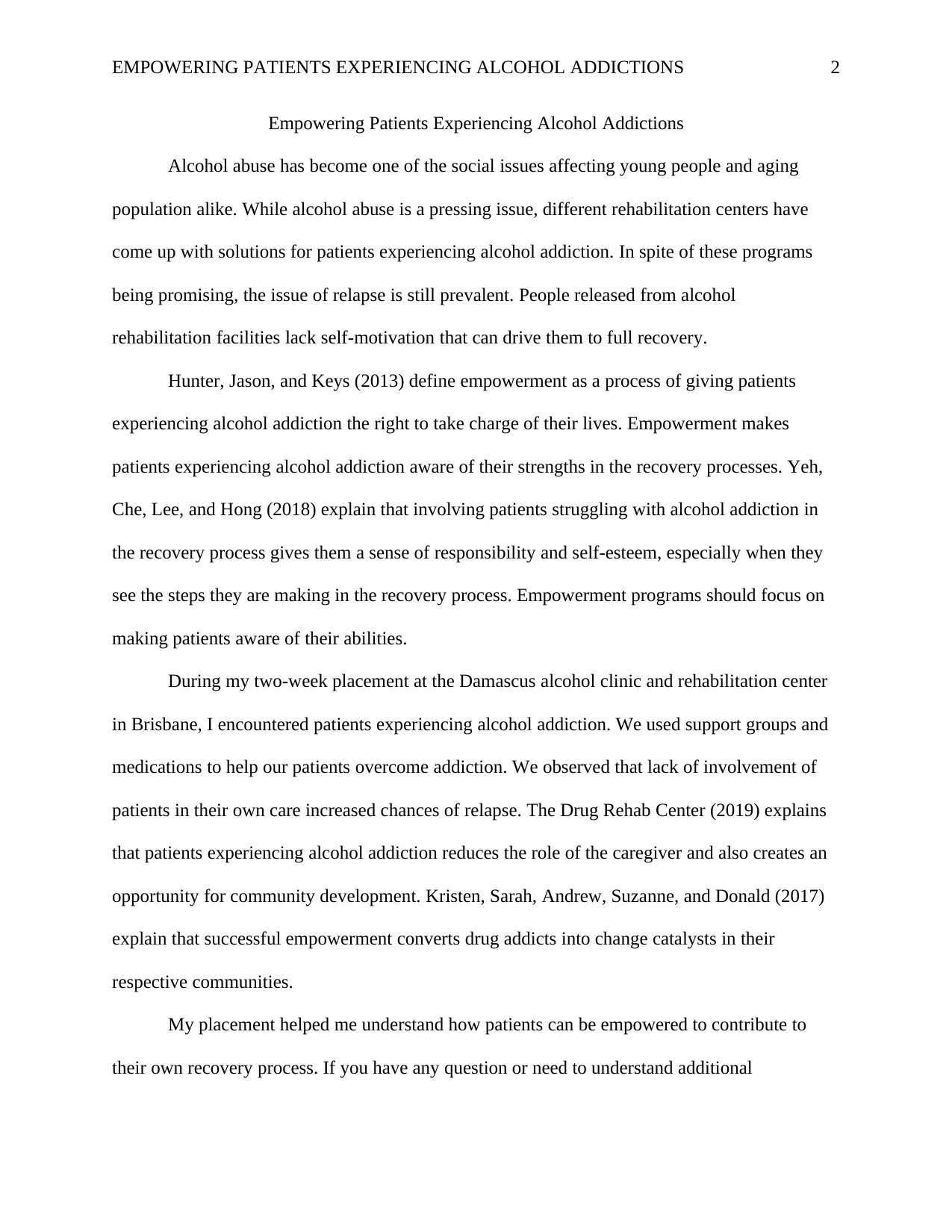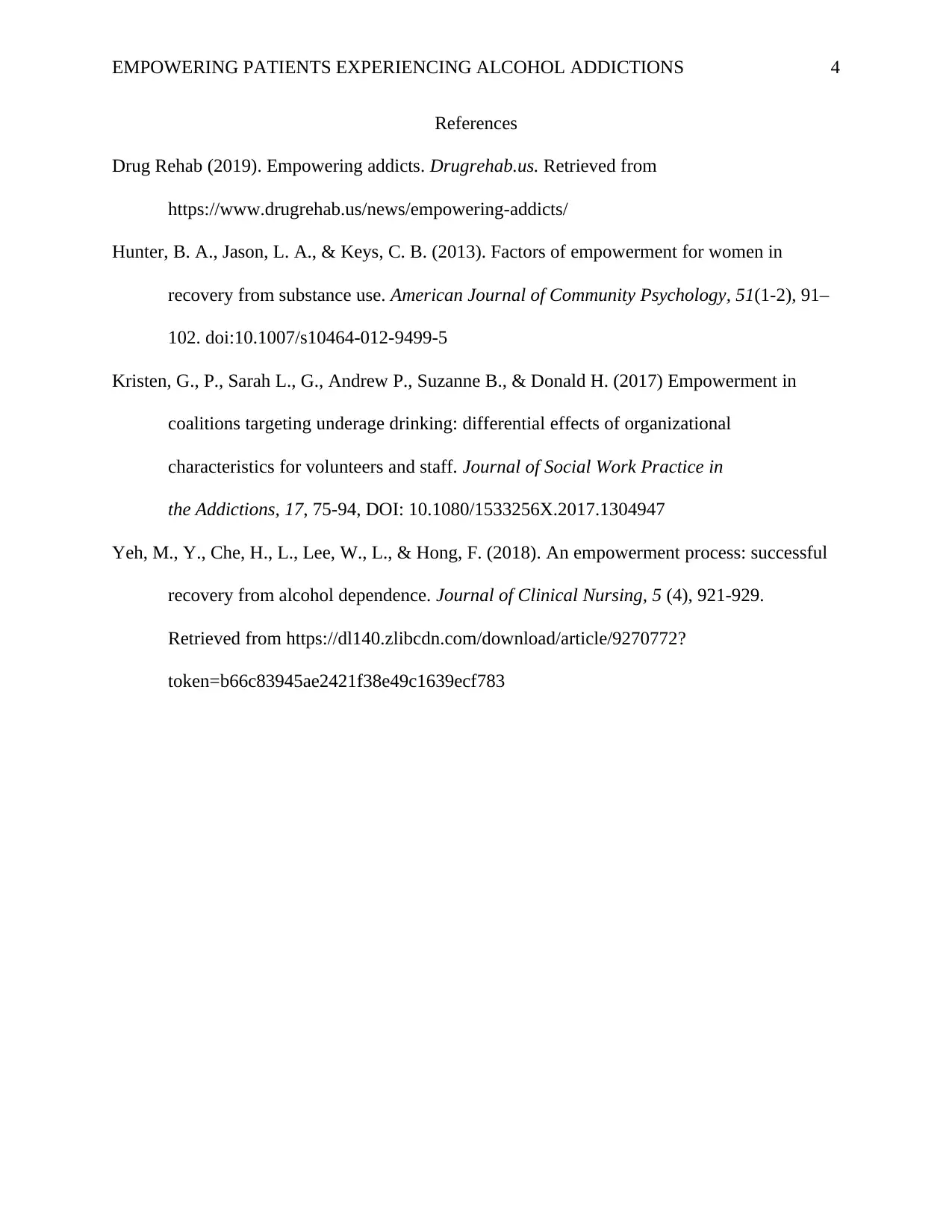Empowering Patients: Independence in Alcohol Addiction Care
VerifiedAdded on 2023/01/16
|4
|562
|53
Discussion Board Post
AI Summary
This discussion post reflects on a two-week placement at an alcohol clinic, highlighting the significance of patient empowerment in alcohol addiction recovery. It emphasizes that involving patients in their care fosters responsibility and self-esteem, reducing the likelihood of relapse. The post draws on research that defines empowerment as giving patients the right to take charge of their lives and recognizes their strengths. The author observed that a lack of patient involvement in their own care increased the chances of relapse. The post also highlights that successful empowerment can transform addicts into change catalysts within their communities. The author welcomes contributions, recommendations, and questions related to empowering patients in their recovery journey. The post references several articles to support the claims.
1 out of 4





![[object Object]](/_next/static/media/star-bottom.7253800d.svg)